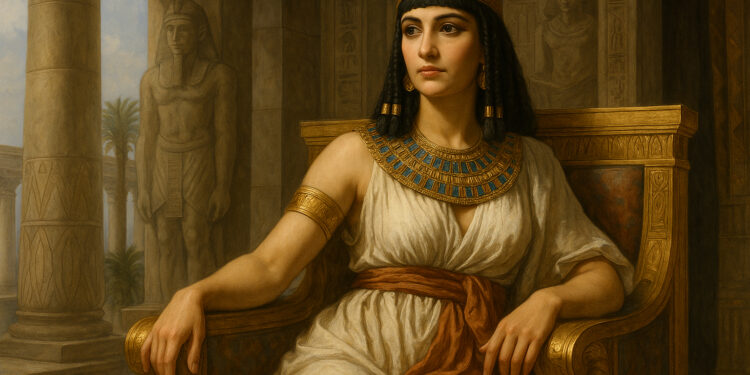Cleopatra VII, the last active ruler of the Ptolemaic Kingdom of Egypt, remains one of history’s most fascinating figures. Beyond the myths of beauty and seduction lies a story of intelligence, political mastery, and cultural legacy. Cleopatra was not merely a queen; she was a strategist, linguist, and visionary who fought to preserve Egypt’s sovereignty amid the rise of Rome. Her life reflects a powerful blend of ambition, intellect, and enduring influence.
A Queen Shaped by Power and Intrigue
Born into a dynasty rife with internal strife, Cleopatra inherited a throne fraught with danger. The Ptolemies, descendants of one of Alexander the Great’s generals, ruled a Greek-speaking Egypt torn between cultures. From a young age, Cleopatra displayed sharp political instincts. Fluent in several languages — including Egyptian, unlike her predecessors — she understood the importance of connecting with her people. Her early reign was marked by power struggles with her siblings, forcing her to master diplomacy and resilience.
Alliances That Defined Empires
Cleopatra’s relationships with Julius Caesar and later Mark Antony were not mere romantic tales but political partnerships. With Caesar, she secured Egypt’s stability and her rightful place on the throne. Together, they envisioned a new empire where East and West could coexist. After Caesar’s death, her alliance with Antony symbolized both passion and political ambition — a last stand against Rome’s growing dominance under Octavian (later Augustus). Though their defeat marked the end of Egyptian independence, it cemented Cleopatra’s place in world history as a ruler who dared to defy empire.
Beyond Beauty: The Mind of a Leader
Too often, Cleopatra’s story is reduced to her allure, but her intellect was her true power. She was an astute economist who revitalized Egypt’s trade networks and strengthened its agricultural base. She oversaw construction projects, funded scientific research, and positioned Egypt as a cultural hub. Her leadership combined charm, vision, and pragmatism, proving that charisma can coexist with strategic brilliance.
The Legacy of Cleopatra’s Reign
Cleopatra’s death marked not just the fall of a queen but the end of an era. Yet her legacy lived on — in art, literature, and collective imagination. From Shakespeare’s tragedies to modern films, Cleopatra continues to inspire reinterpretation as a symbol of female power and independence. Her life challenges stereotypes of women in leadership and reminds us that influence often transcends time and empire.
Conclusion
The true story of Cleopatra is one of intellect, courage, and vision, not just romance and tragedy. Her reign redefined what it meant to be a leader in a world dominated by men. Even centuries later, Cleopatra’s legacy endures — not as a mythic beauty, but as one of the most formidable rulers the ancient world ever knew.









